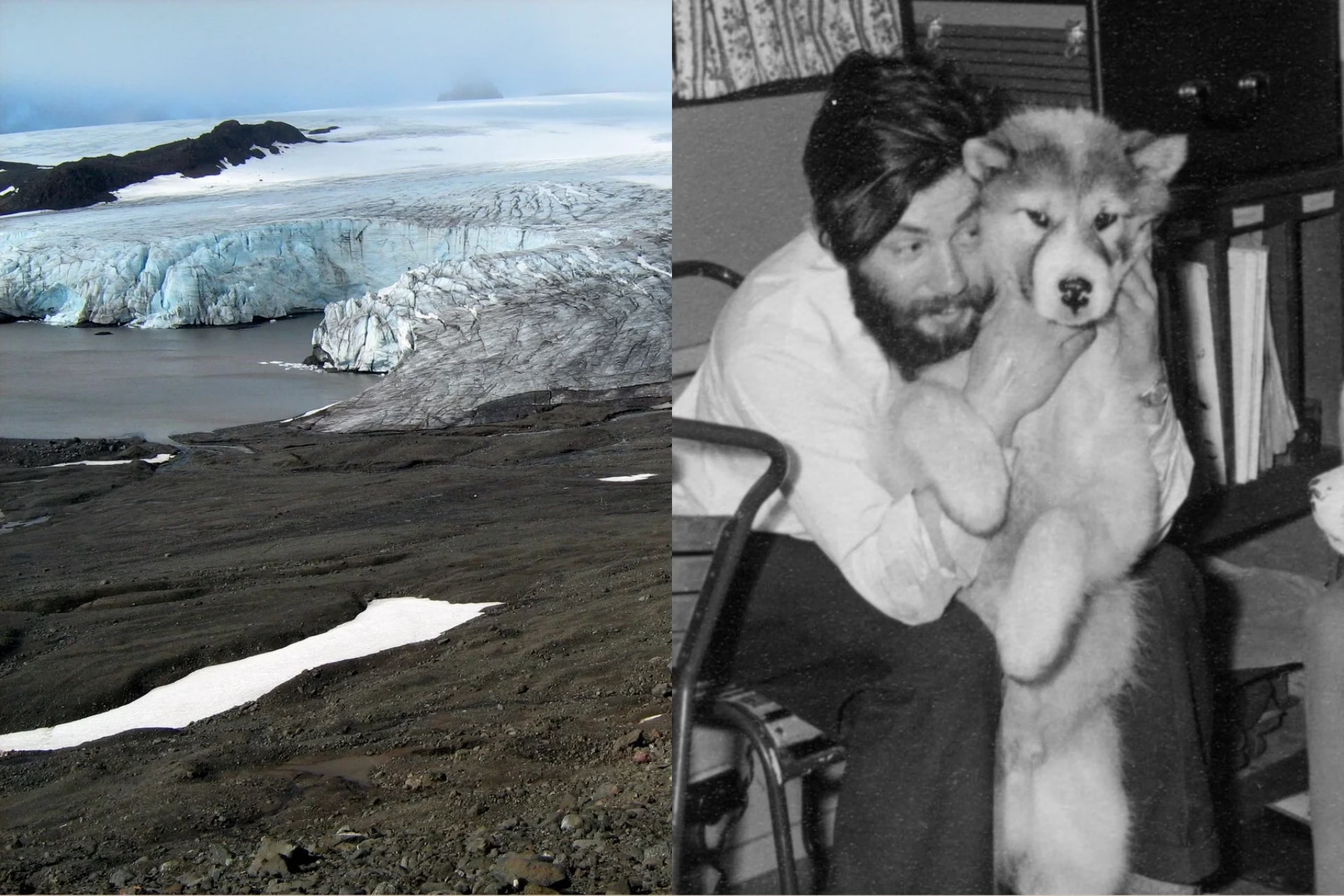Rabat – The British Antarctic Survey (BAS) has announced the recovery of the remains of Dennis Bell, a young British researcher who vanished in a glacier accident more than six decades ago.
Bell, 25, disappeared on July 26, 1959, after falling nearly 100 feet into a crevasse while climbing the Ecology Glacier on King George Island, part of the South Shetland Islands off the Antarctic Peninsula.
Bell survived the initial fall, but rescue efforts failed. His companion, surveyor Jeff Stokes, managed to lower a rope to him, but Bell had fastened it through his belt rather than around his body.
As Stokes and the sled dogs hauled him upward, the belt broke, sending Bell back into the crevasse. In worsening weather, the team determined there was no hope of saving him.
For 66 years, Bell’s final resting place remained hidden beneath ice and snow. In January, a team from the Polish base on King George Island discovered his remains and personal belongings in rocks exposed by the glacier’s retreat.
Over a five-day archaeological survey, they recovered bone fragments alongside items such as a watch with an engraved inscription, a Swedish knife, radio gear, and ski poles.
DNA testing confirmed the remains belonged to Bell, matching samples from his surviving siblings, David Bell and Valerie Kelly. “We were shocked and amazed,” David Bell said, expressing gratitude to the British and Polish teams for “bringing him home” and giving the family long-awaited closure.
Known as “Tink” to his colleagues, Bell joined the Falkland Islands Dependencies Survey — predecessor to BAS — in 1958 as a meteorologist after serving in the Royal Air Force. He was stationed at a small outpost in Admiralty Bay, where winter sea ice lasts for nine months.
BAS Director Dame Jane Francis called the find “poignant and profound,” saying it not only closed a decades-long mystery but also highlighted “the human stories embedded in the history of Antarctic science.”
Following the recovery, Bell’s remains were transported aboard the BAS research ship Sir David Attenborough to the Falkland Islands, then on to London via the Coroner for British Antarctic Territory.
“Dennis was one of many brave personnel who advanced early Antarctic research in extraordinarily harsh conditions,” Francis said. “Though he was lost in 1959, his memory endures in the legacy of polar exploration.”
















